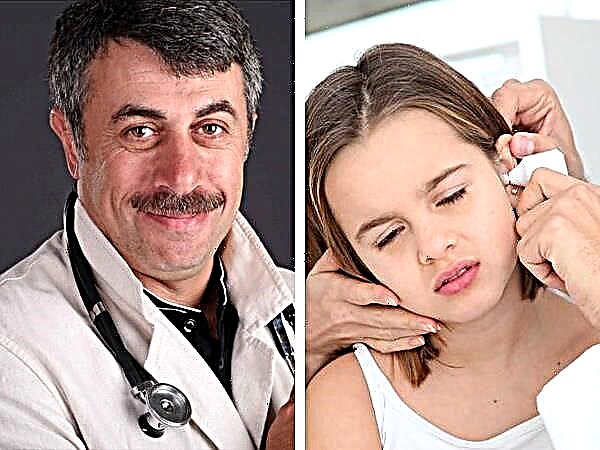
Bitten, unkempt, uneven nails are a problem that most parents face sooner or later. What to do, what are the reasons for this harmful children's habit and how to deal with it - our article will tell you about all this.

Is it a bad habit or a serious illness?
The habit of biting nails has a well-defined medical name - "onychophagia". Another term - "dermatophagia", means an irresistible desire or craving for nibbling or pinching off the cuticle. Most often, this habit is observed in children from about 6 years of age. By the age of 10, about every third child suffers from it. Older children "bite their nails" even more often - about every second.
Girls suffer from this disorder less than boys. This is understandable: by their nature, they have a higher resistance to stress.
Psychologists believe that such a phenomenon should be considered not as a bad habit, but as a specific problem. And you shouldn't let it go by itself. It is necessary to determine the reasons for its appearance so that it can be easier and more efficient to deal with it.
We recommend watching a video recorded for parents by the Union of Pediatricians of Russia, in which experts give several practical tips for solving the problem of onychophagia:
Causes
The habit of biting your nails never arises from scratch. Usually it is preceded by changed life circumstances. This can be a change in preschool or school, class, move to another apartment, and any major change in the child's life that he cannot cope with psychologically.
Nervous tension builds up inside the child and turns into a bad habit. In other words, bitten nails are nothing more than an attempt to “gnaw out” or get rid of the problem oppressing the child.

Physiological reasons
- Central nervous system problems. It can be a tendency to neurosis, inherited, increased excitability and other diseases.
- Lack of vitamins in the child's diet, poor nutrition.
- Diseases associated with the cardiovascular system.
- Parasites... Sometimes nail biting is associated with the presence of helminths and other parasitic worms in the child's body.
- Nutritional Problems. The child is unable to meet his nutritional needs, hence the nail biting disorder. Most often, such problems are associated with a ban on sweets, diet, and basic malnutrition.
- Early weaning or nipples.
- Hygiene... This problem can occur due to too long and dirty nails, irregular hygiene procedures, etc.

Socio-psychological reasons
- Loss of a relative or loved one. Psychological trauma and stress most often lead to the emergence of some kind of bad habit.
- Severe fright can easily contribute to such a phenomenon. Loud sound, sudden movement and other reasons can especially strongly affect the psyche of a child 2, 3 years old. A child of 4 years old can be very frightened by the cry or bark of a dog.
- Tense situation between parents. The unfavorable psychological climate in the family, constant abuse, high-pitched conversations, aggression directed at each other, one way or another, will certainly leave their mark on the fragile child's psyche. Especially if the child is in such an atmosphere for a constant and long time.
- An abrupt change of scenery. Most often this is due to a change in kindergarten, school, place of residence. This problem can arise after a long break from attending preschool or school.
- Serious psychological stress. Today, many parents strive to maximize their children's free time with tutors, circles, sports sections, and developmental activities. This, of course, is not bad, but each child is individual and the load for him should be different. Someone can easily withstand a few additional lessons, someone will only need one. The psychological overload of the child leads to increased fatigue, absent-mindedness and neuroses.

- The direct opposite of the previous point is the poor employment of the child. He does not know what to do with himself and begins to bite his nails out of boredom.
- Bad example. If someone in the family or close environment of the child bites his nails, then the child will sooner or later try to do the same.
- Improper nutrition. Uncontrolled consumption of, for example, carbonated drinks or sweets increases the child's anxiety.
- Sleep disturbance. Most often this is due to the fact that the child sits up late at the TV, computer, tablet. Regular lack of sleep leads to irritability, which the child tries to relieve through nail biting.
- Low self-esteem. Most often, such problems arise with children 8, 9 years old and older. Studying at school, attending sports clubs or circles: parents begin to demand that the child achieve certain results that he, for various reasons, cannot achieve. Hence the irritation of the parents and a decrease in the child's sense of self-importance. He begins to fear that his parents will scold him and begins to bite his nails, thus splashing out his resentment.
We recommend watching a video in which a practicing psychologist considers the reasons why children begin to bite their nails:
Side effects
Regular nail biting can lead to a number of problems, including:
- damage to nails and cuticles;
- impaired nail growth;
- cuticle tears;
- introducing infection into open wounds;
- regular biting of nails can also lead to a number of dental problems, for example, to damage to the gums with subsequent infection;
- diseases of the gastrointestinal tract, as well as diseases caused by viruses and microbes;
- psychological problems (isolation, lack of communication, etc.).

What to do: advice from psychologists
Naturally, in order to eliminate the problem itself, it is necessary first to identify the causes of its occurrence. And the sooner this happens, the less painful weaning from a bad habit will be.
Here's what psychologists advise on this:
- you should never scold a child for this habit, all the more, hit his hands or smear his fingers with something sharp and bitter;
- Talk to your child about potential illnesses and problems that may arise when biting your nails
- observe the mode of sleep, wakefulness and nutrition established by the child's age;
- develop fine motor skills (sculpting, drawing, playing constructor, musical instruments, etc.);
- regular hand hygiene;
- to provide a normal psychological environment in the environment of the child;
- encourage the child for the expression of his emotions, and it does not matter - positive or negative;
- talk with the child about his concerns. The child can express his problems not only in conversation, but also in drawing, for example.

Traditional methods
If the advice of a psychologist does not lead to the desired result and the child, rather, out of habit continues to bite his nails, then you can use one of the folk remedies.
- Lubricate the child's nails with something bitter. Many parents use mustard or agave juice for this purpose. The method is ineffective and not very pleasant for the child. It is best to use a varnish specially created for this purpose, for example, "Nekusayka". The child's nails are varnished, and now every time the fingers are brought to the mouth, the bitter taste will prevent the child from forgetting that this should not be done.
- If the emergence of this habit is associated with constant psychological stress, then it is necessary to teach the child to remove it with the help of a simple exercise or breathing exercises. The first option is to frequently clench and unclench your fists. Breathing exercise: the child breathes in and out slowly and deeply for 5 minutes. Such constant control over breathing will help to significantly reduce the level of emotional tension in the child. To make the exercise interested in the baby, you can give him a favorite toy, for example.
- Beautiful manicure... Mom, doing a manicure, can involve her daughter in this process. Showing a set of tools for nail care, explaining what this or that item is for, giving the baby a manicure and even covering the nails with a special children's varnish is a wonderful and very visual way to show how great it is when the nails are kept in perfect order. And this applies not only to girls, but also to boys. Neat, evenly trimmed nails are always beautiful, you need to remind children of this more often!
- Reflex formation. To do this, you can put on the child's hand, for example, a soft bracelet with an elastic band. As soon as the fingers reach to the mouth, you need to gently pull the elastic and "click" it on the child's hand. The method is quite fun and effective.

Starting the struggle to wean a child from a bad habit, one should not forget that this process requires perseverance and patience! The main thing is not to deviate from the intended goal and then everything will work out!
For information on how to wean a kid from biting his nails, see the program "Living Healthy".



